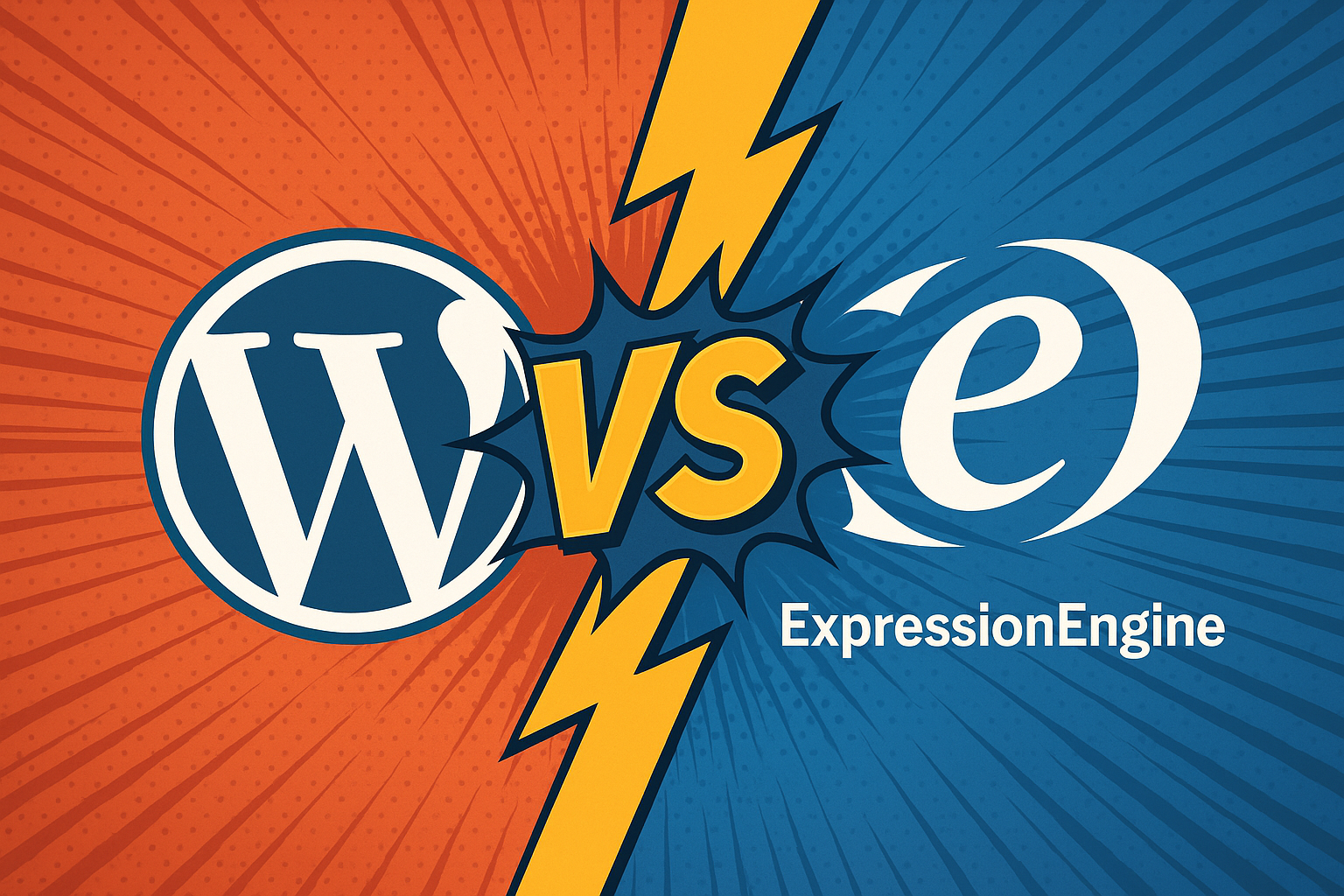
Choosing between ExpressionEngine and WordPress in 2025 can be tricky. Both are powerful CMS platforms, but the right choice depends on your goals, budget, and long-term vision. WordPress powers 43% + of the internet, while ExpressionEngine has long been the go-to for developers who need flexibility and granular control. This article breaks down the core strengths, limitations, and ideal use-cases for each platform so you can confidently recommend – or adopt – the right CMS for every project.
Platform Snapshots
| Feature Area | WordPress | ExpressionEngine |
|---|
| License | Open-source GPL, free core | Free core (open-source MIT) + optional Pro ($199) |
| Ecosystem | 60K + plugins & themes | Smaller marketplace; commercial add-ons built by established dev shops |
| Learning Curve | Beginner-friendly for content editors | Developer-centric templating (Twig/Blade-style) |
| Hosting Footprint | Runs on any LAMP stack; abundant managed hosts | Also LAMP friendly; fewer “one-click” managed hosts |
| Security Surface | Large plugin pool increases exposure; frequent patches | Smaller attack surface; updates less frequent |
| License Costs | Mostly $0 (paid themes/plugins extra) | Often <$500 total add-on spend per site |
Where WordPress Shines
- Rapid MVPs & Marketing Sites
- Drag-and-drop page-builder plugins (Elementor, Gutenberg blocks) get non-technical teams publishing fast.
- Budget-Sensitive Clients
- Thousands of free themes and plugins provide out-of-the-box functionality for little to no cost.
- Large Community Support
- 24/7 answers on Stack Overflow, official forums, countless tutorials, and dedicated managed hosting providers.
- E-Commerce & LMS
- WooCommerce and LearnDash make it easy to bolt on stores or courses without custom development.
3. Where ExpressionEngine Excels
- Complex, Structured Content
- EE’s fluid field layouts and channel system give developers granular database-style control without hacking core.
- Multi-Site, Multi-Language Projects
- Built-in multi-site manager allows single-codebase, multi-domain setups with isolated or shared content.
- Security & Compliance
- Smaller plugin ecosystem and pro-coded add-ons decrease vulnerabilities—ideal for finance, healthcare, or EDU.
- Performance by Design
- Template caching, query caching, and no unnecessary plugin overhead let EE handle high-traffic spikes gracefully.
Hybrid & Headless Options
- WordPress as Headless CMS: Pair WP’s REST or GraphQL API with a React/Vue front-end for decoupled builds.
- EE + Gatsby/Next.js: EE’s GraphQL add-ons (e.g., CraftQL-style extensions) let you serve data to static-site generators for Jamstack performance with EE’s robust back-office.
Conclusion
No single CMS rules them all. WordPress remains unbeatable for speed, cost, and an expansive plugin universe—perfect for marketing-driven or budget-constrained builds. ExpressionEngine shines when you need custom data structures, multi-site control, and tighter security out of the box.
When you map each platform’s strengths to your project’s requirements—timeline, budget, content complexity, and compliance—you’ll deliver a solution that scales with your client’s ambitions.
Need help deciding—or building? Get in touch with Cybertron Technologies. We’ve shipped dozens of WordPress and ExpressionEngine sites, and we’ll match the right tech stack to your goals.





